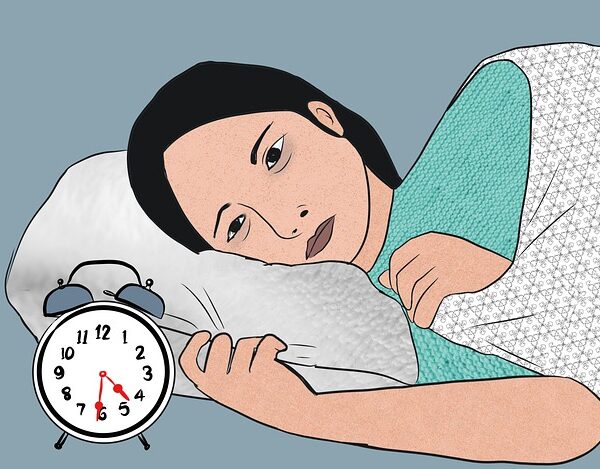To feel your best every day, you need to focus on the fundamental aspects of personal health that often get overlooked. It’s not just about hitting the gym or eating salads; it’s about creating a holistic approach that incorporates balanced nutrition, hydration, and quality sleep. Exploring how these elements intertwine can reveal secrets that might transform your daily routine. You may be surprised by the simple changes that can lead to significant improvements in your overall well-being. What if you could access a new level of energy without overhauling your entire lifestyle?
Nourishing Your Body
 When it comes to nourishing your body, the choices you make daily can set the foundation for a healthier life. You’ve probably heard about the importance of balanced meals, but let’s dive deeper into how nutrient timing can amplify your health. By strategically planning when you consume your meals, you can optimize your body’s performance and recovery.
When it comes to nourishing your body, the choices you make daily can set the foundation for a healthier life. You’ve probably heard about the importance of balanced meals, but let’s dive deeper into how nutrient timing can amplify your health. By strategically planning when you consume your meals, you can optimize your body’s performance and recovery.
Start your day with a hearty breakfast that includes protein, healthy fats, and complex carbohydrates. This not only fuels your morning but also sets a positive tone for the rest of the day.
As you move through your day, aim to eat smaller, balanced meals every few hours. This approach keeps your energy levels steady, preventing that dreaded afternoon slump.
Pay attention to the timing of your meals, especially around workouts. Consuming a mix of protein and carbs before and after exercising can enhance your performance and recovery. Think of it as giving your body the right tools at the right time.
For instance, a banana and yogurt prior to your workout can provide quick energy, while a chicken salad afterward helps repair muscles.
Don’t forget about the importance of variety. Incorporating a colorful array of fruits, vegetables, whole grains, and lean proteins guarantees you’re getting the essential nutrients your body craves.
The Power of Hydration
Although you mightn’t think about it often, staying properly hydrated is one of the simplest yet most powerful ways to enhance your overall health. Hydration benefits extend beyond just quenching your thirst; it plays a vital role in digestion, energy levels, and even cognitive function.
However, many hydration myths can cloud your understanding—like the idea that you need to drink eight glasses of water a day. Your hydration needs vary based on factors like activity level, weather, and individual health.
To optimize your hydration, consider these hydration tips: carry a reusable water bottle, set reminders to drink throughout the day, and listen to your body’s signals. Timing matters too—aim to hydrate before, during, and after workouts for peak performance.
When it comes to hydration sources, water is essential, but don’t overlook fruits, vegetables, and herbal teas that can also boost your intake.
Weather can greatly impact your hydration needs. In hot climates, you lose more fluids through sweat, so increase your intake accordingly.
Similarly, during winter, dry air can dehydrate you, so keep sipping water even if you don’t feel thirsty.
Benefits of Regular Exercise
Staying hydrated is just one piece of the puzzle for ideal personal health; regular exercise is another key component that can transform your well-being. Engaging in physical activity regularly boosts your cardiovascular health, ensuring your heart and lungs function at their best.
As you build muscle strength, you’ll notice not only improved physical performance but also enhanced metabolism, which aids in effective weight management.
But the benefits of exercise extend beyond the physical. You might find that your mental well-being improves considerably when you incorporate regular workouts into your routine. Exercise releases endorphins, those feel-good hormones that help reduce stress and anxiety.
As you sweat it out, you’re not just burning calories; you’re also clearing your mind and elevating your mood.
Additionally, exercising can help increase your energy levels throughout the day. Instead of feeling drained, you’ll experience a natural boost that keeps you alert and focused on your tasks.
Plus, engaging in group activities or classes can foster social interaction, creating connections with others who share your fitness goals.
Importance of Sleep
During the night, as you drift into slumber, your body undergoes essential processes that are significant for ideal health. Quality sleep is imperative for maintaining your physical and mental well-being. By understanding your sleep cycles, you can maximize the rejuvenating benefits of each stage, from deep sleep to REM.
Creating a conducive sleep environment is key. Guarantee your bedroom is dark, quiet, and at a comfortable temperature. This way, you can improve your sleep hygiene and reduce the risk of sleep disorders, such as insomnia or sleep apnea.
Establishing consistent sleep routines can also signal to your body when it’s time to wind down, making it easier to fall asleep. Incorporating sleep meditation into your nightly ritual can help calm your mind and prepare you for rest, enhancing your overall sleep experience.
You might also find sleep tracking beneficial, as it allows you to monitor your patterns and make adjustments as needed.
The sleep benefits extend beyond mere rest. A good night’s sleep boosts your mood, sharpens your focus, enhances your immune system, and supports your metabolism.
Mindfulness and Mental Clarity
Sleep lays the foundation for mental clarity, making it easier to embrace mindfulness in your daily life. When you’re well-rested, it’s simpler to focus and engage in practices that enhance your mental state.
One powerful way to achieve this is through mindful breathing. Taking a moment to breathe deeply can center your thoughts and reduce stress.
To further cultivate mindfulness and mental clarity, consider the following practices:
-
Mental Decluttering: Spend a few minutes each day clearing your mind. Write down your thoughts to help you let go of mental noise and focus on the present.
-
Gratitude Journaling: Each night, jot down three things you’re grateful for. This shifts your focus towards positivity and cultivates a mindset of abundance.
-
Positive Affirmations: Start your day by affirming your strengths and capabilities. This can boost your self-esteem and set a positive tone for your day.
Incorporating visualization techniques can also enhance your mindfulness practice. Picture yourself achieving your goals or overcoming challenges.
This not only helps with stress management but also sharpens your mental clarity.
Building Healthy Relationships
Healthy relationships are like a sturdy bridge that connects you to others, fostering support and understanding in your life. To build these essential connections, you need to prioritize effective communication. Make sure to express your feelings and thoughts openly, while also practicing active listening. This means truly hearing what the other person is saying, validating their feelings, and showing empathy.
Emotional support is important in any relationship. Be there for your friends and family during tough times, and don’t hesitate to lean on them when you need it too. Remember, building trust isn’t a one-time event; it’s a continuous process. Engage in trust-building activities, and always keep your promises.
Establishing healthy boundaries is essential. Clearly define what’s acceptable and what’s not in your relationships. This not only protects your well-being but also fosters mutual respect.
When disagreements arise, focus on conflict resolution strategies that prioritize understanding rather than proving a point. Approach conflicts with a willingness to compromise and find common ground.
Shared values can strengthen your connections, creating a sense of belonging and purpose. Explore your beliefs and interests with those you care about, as this can deepen your bond.
Setting Realistic Goals
Building strong relationships can provide the support you need as you commence on personal growth, including setting realistic goals.
To truly thrive, you’ll want to make your goals SMART: Specific, Measurable, Achievable, Relevant, and Time-bound. This approach helps you focus on incremental progress while keeping your long-term vision in mind.
Here are three key strategies to enhance your goal-setting process:
-
Accountability Partners: Find someone who shares your aspirations or interests. They can motivate you, offer feedback, and help you stay committed to your goals.
-
Self-Assessment Strategies: Regularly evaluate your progress. This allows you to adjust your approach if necessary, ensuring that you’re heading in the right direction.
-
Celebration Milestones: Don’t forget to celebrate your achievements, no matter how small. Recognizing these milestones keeps your motivation high and reinforces your commitment.
Conclusion
In the journey to feel your best every day, think of your health as a garden. You need to nourish the soil with balanced nutrition, water it with hydration, and let the sunlight of regular exercise shine down.
Cultivating mindful practices and fostering healthy relationships are the seeds that help you grow. Remember, every small step you take is a victory, and celebrating those milestones will keep your garden flourishing. So, dig in and watch your well-being bloom!











